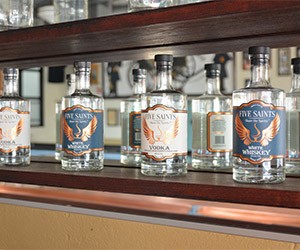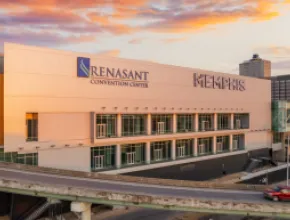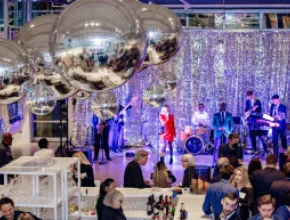As the story goes, William Penn, while a teetotaling Quaker, had a glass of ale at the Blue Anchor Tavern right upon his 1682 landing in Philadelphia, the city he founded that year. With other renowned patrons, including the pirate Blackbeard, the tavern, by most accounts Philadelphia’s first, was soon followed by many more. These all-purpose establishments were the principal gathering and organizing spots of the times. George Washington’s favorite watering hole, the City Tavern, hosted the first meetings of the First Continental Congress in 1774. Serving beer, gin, rum toddies, cider and punch, the 1685 Tun Tavern was where in 1775 a congressional committee drafted the resolution that created the United States Marine Corps.
Author of the 2014 book Forgotten Drinks of Colonial New England: From Flips and Rattle-Skulls to Switchel and Spruce Beer, Upstate New York-based Corin Hirsch writes and speaks about the history of cordials, constitutionals and other beverages.
“Philadelphia was Madeira central during the 1700s,” said Hirsch, referring to the Portuguese island’s wine that dominated Colonial America—and Philadelphia parties. “Thomas Jefferson drafting the Declaration of Independence with Madeira at his elbow, while Ben Franklin believed so powerfully in its power that he once dropped a few dashes onto belly-up flies and swore it brought them back to life. John Cadwalader, who commanded Pennsylvania troops during the Revolutionary War, was also known to sip Madeira before battle.”
Less fortified were the Continental Army soldiers who suffered through the winter encampment of 1777-1778 at Valley Forge.
“They lacked in everything,” Hirsch said, “but George Washington was known to give his men booze when he had it.”
No such shortage faces Valley Forge and Philadelphia groups today, with plentiful venues both old and new tapping into the region’s liquid lineage.
Philadelphia
The Blue Anchor and Tun Tavern are gone, but the City Tavern lives on in replica form after the 1773 original was destroyed in 1854. Part of Independence National Historical Park, this three-story 1975 update is run by Chef Walter Staib, multiple Emmy-winning host of A Taste of History on PBS. With a spacious garden and 10 dining rooms, each accommodating at least 30 guests for private events (the three second-floor rooms can be combined for gatherings of 140), chef Staib’s “founding fathers” inspired a menu featuring a full selection of libations. These include ales, Thomas Jefferson-inspired French wines, historic drinks like the shrub, wassail and City Tavern Warmer (rum, brandy and whiskey with apple cider), and of course, Madeira.
While north Philadelphia’s once booming Brewerytown neighborhood makes a comeback, the city maintains its status as one of America’s top beer cities at group-capable operators such as the Yards Brewing Company, Dock Street and Philadelphia Brewing Company. Offering full buyouts, second floor space for 150 people and flexible options for smaller groups, 2nd Story Brewing is a restaurant and brewery serving traditional and innovative beers handcrafted on-site. In early June, the annual 10-day Philly Beer Week is a frothy tie-in for groups.
Operating from 1687 until the 1960s, the Morris Brewery has claim as one of the nation’s oldest continuously run enterprises. Today, the Morris family’s circa-1787 National Historic Landmark home is the luxurious boutique Morris House Hotel, with versatile event space in its acclaimed M Restaurant and outdoor beer garden.
Opened in 1860, McGillin’s Olde Ale House reigns as Philadelphia’s oldest tavern. Counted among America’s most authentic Irish pubs, this memorabilia-filled Center City spot hosts private events for 40 or more people.
Located in Philadelphia’s landmark Old Original Bookbinder’s building, The Olde Bar is serial Philadelphia restaurateur Jose Garces’ update of the historic oyster saloon. Complementing the bivalves are classic cocktails like the Manhattan and Sidecar alongside whimsical creations like the Wabbit Season, mixing cognac with carrot ginger syrup and citrus flavors. The restaurant accommodates private gatherings for 25 to 200-plus people, buyouts included.
Heavy drinking was all the rage in Colonial times, but for those opting for more-healthy lifestyle choices, Square 1682 at the Kimpton Hotel Palomar Philadelphia offers a pure wellness program of all natural ingredients, including infused spirits and fresh fruit and juices, with private space for 10 to 250 people.
Valley Forge & Montgomery County
During the 1777–1778 encampment at Valley Forge, Gen. George Washington, Marquis de Lafayette and other Revolutionary War leaders reportedly held secret meetings over ale and food at a nearby tavern. Built in 1746, the tavern is also believed to be where Prussian-born Friedrich Wilhelm von Steuben, whose masterful military mind helped change the tide of the war, stashed away black powder munitions for the fight.
Named the Black Powder Tavern in homage to its heroic past, this historic haunt (there’s reportedly a ghost) on Valley Forge Road welcomes groups with renowned food and craft beer, wines and creative cocktails like the “Baron Von Steuben Kentucky Waffle” (bourbon with fresh lemon juice, maple syrup, apple cider and cinnamon stick). Featured on the Valley Forge Tourism & Convention Board’s Web-based “Patriot Trails” history tours, the tavern is emblematic of the deep-rooted ties and lifeblood legacies that define the destination.
Indeed, as Valley Forge Tourism & Convention Board Executive Director Mike Bowman explained, the very earth of this inviting region stretching west of Philadelphia is fertile ground for spirited times.
“Montgomery County has a centuries-long tradition of excellence in agribusiness, and those skills bring us plenty of opportunity in terms of food and beverage,” Bowman said. “Our chefs, for example, are at the forefront of the farm-to-table trend. As we like to say here, we’ve been eating that way for generations. Our cultivating prowess is also a huge advantage for our brewers, winemakers and distillers. In this era of mass-produced manufacturing, their access to unique, locally grown fruits and vegetables gives them total creative freedom with their product lines, and the results, innovative and exciting, are on fire. Of the many reasons to visit Valley Forge and Montgomery County, the beer, wine and spirits produced here are seriously compelling, and the Valley Forge Tourism & Convention Board promotes them with pride.”
With an agrarian and hospitality story dating back to 1730, Normandy Farm Hotel & Conference Center in Blue Bell keenly exemplifies this legacy. Featuring a massive 1875 barn, once the largest in the nation, this handsomely restored walled-in estate comes with 113 guest rooms plus 28 spacious suites in updates of four historic gatehouses, and more than 23,000 square feet of IACC-certified space for conferences of up to 500 people.
Groups have golf at sibling property Blue Bell Country Club across the way, plus culinary teambuilders at Normandy Farm’s on-site restaurant, “the farmer’s daughter”, which features the modern farm cooking concept. Accommodating from 10 to 78 people for events, the restaurant’s mix of private and semi-private group spaces includes the adjacent bar and lounge area. Housed in America’s oldest silo, this inviting spot is for bourbons, custom-infused cordials, Pennsylvania craft beers, local wines and more.
Housed in a landmark 19th century firehouse in Norristown, Five Saints Distilling produces carefully handcrafted small-batch spirits such as vodka, bourbon, gin and rum. Named for the five father figures who raised founder-distiller John Robert George following his father’s untimely passing in 1970, the venue, filled with vintage firehouse artifacts, is a welcoming hub for tastings, live music and private events.
According to George, there is presently space for groups of 80 people in the tasting room bar/distillery area on select weekday times. Slated for completion in mid-summer 2017, the second and third floors are being developed to include a restaurant and second bar, with expanded space for groups.
At family-run Boardroom Spirits in Lansdale, Hungarian owner Marat Mamedov goes the all-natural route, relying on locally sourced grains, fruits and vegetables to create handcrafted spirits ideal for warming up group tours, tastings and events.
Valley Forge Casino Resort, which expects to complete a $6 million renovation of all of its 116 rooms, 40 suites and two super suites in its Casino Tower by the end of March 2017, pours a full selection of drinks at venues, including the Valley Tavern and poolside Valley Beach Club.







